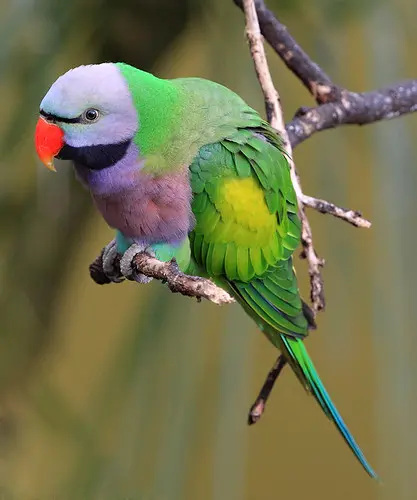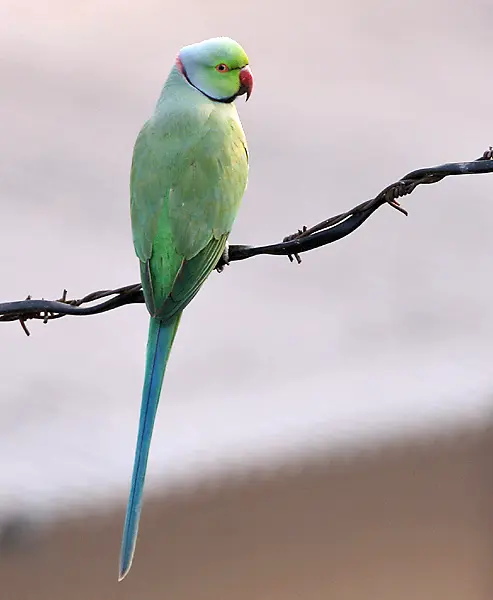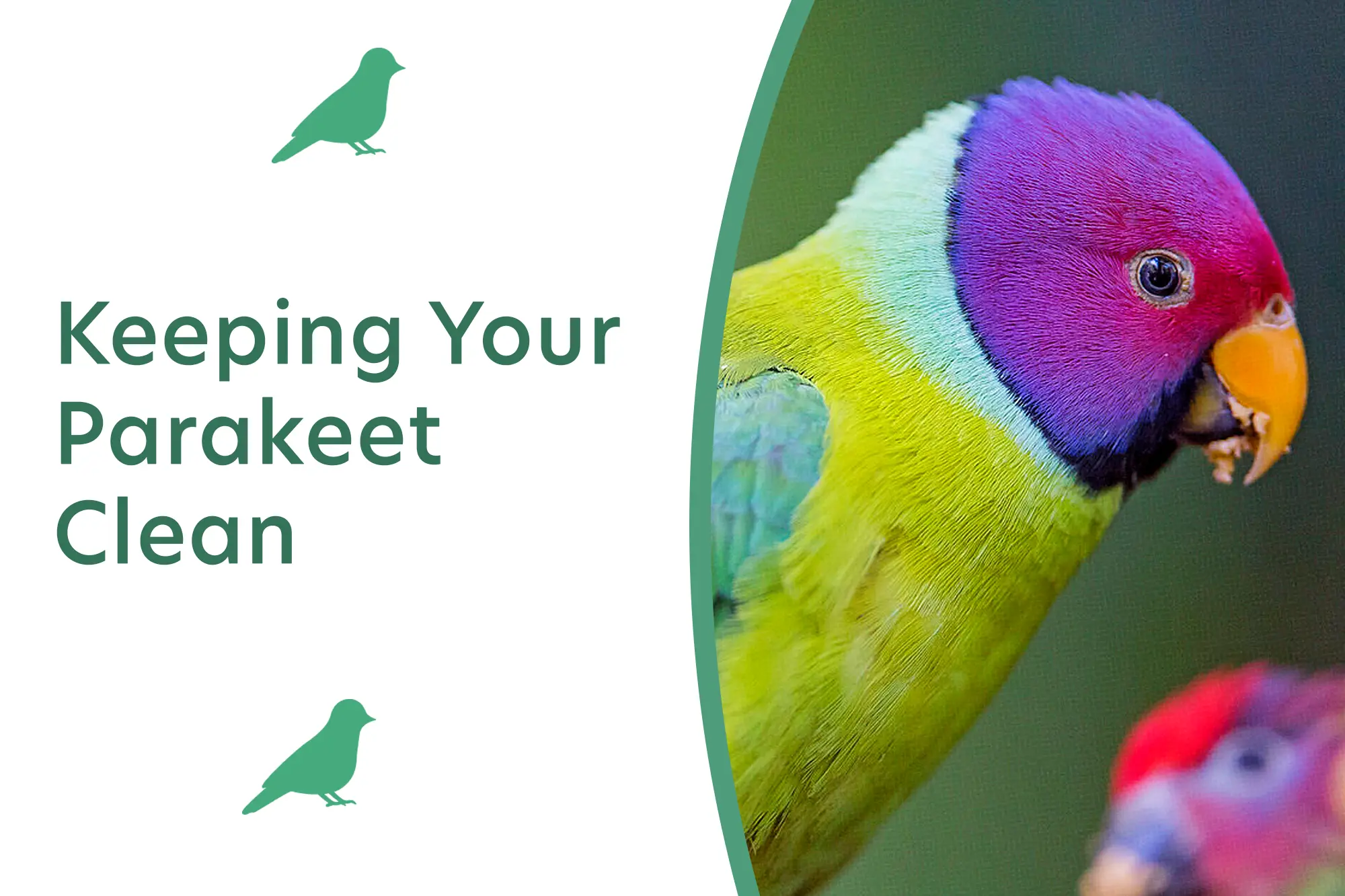Parakeets, also known as budgies, are popular pets due to their playful nature and vibrant colors. Their health and happiness largely depend on the cleanliness of their living conditions. Dirty surroundings can lead to a host of health problems for your feathery friend, which makes prioritizing hygiene an important duty.
But don’t fret! We’ll show you how to maintain your parakeet’s hygiene – from routine cleaning tasks, overcoming possible challenges, to helpful tips to keep them sparkling clean.
A Parakeet’s Hygiene Needs
Understanding your parakeet’s hygiene requirements is the primary step to a healthier and happier bird. Unlike dogs or cats, birds don’t need frequent baths. In fact, they naturally groom themselves by preening – a behavior parakeets engage in to form their feathers and remove dirt. The following are the basics a parakeet needs to stay healthy:
- Bathing Needs: Parakeets enjoy bathing, but how often they need to depend on the specific bird, their health status, and the climate. Generally, offering a bath once or twice a week should be enough.
- Cage Cleaning: A clean cage prevents potential diseases. Allowing your bird to live in a dirty, cluttered cage can expose them to pathogens.
- Cleaning Feeding Dishes: Regular cleaning of feeding dishes is mandatory to avoid bacterial growth. Replace their water daily and clean the dishes with hot, soapy water.
- Cleaning Toys and Perches: Your parakeet’s toys, swings, and perches also need to be clean. Their playful nature may cause them to chew and peck these items, which, if dirty, can introduce harmful bacteria.
Step-by-Step Guide on Keeping Your Parakeet Clean

Now that you understand the importance of hygiene for your parakeet let’s delve into details on how to maintain it.
Bathing your Parakeet
Bathing helps your parakeet maintain its plumage and skin health.
- Bathing Options: You can introduce a shallow water dish for your parakeet to bathe in, or gently mist them with lukewarm water using a spray bottle. Avoid aiming at their faces directly to prevent them from inhaling water.
- Frequency: As mentioned earlier, the frequency should be once or twice a week. Observe your parakeet; if they seem to enjoy it, you can offer them a bath more frequently. Remember, never force a bath upon them.
- Drying: A parakeet should never be towel-dried or exposed to drafts while wet. Allow them to air dry in a warm room.
Cleaning the Cage
Proper cage cleaning contributes to your parakeet’s overall health.
- Daily Cleaning: Every day, you should empty and clean out the food and water dishes. Also, remove any visible droppings or discarded food from the bottom of the cage.
- Weekly Cleaning: Each week, remove all cage accessories for cleaning — scrub them with a bird-safe cleaner, then rinse and dry thoroughly. Also, scrub the entire cage with bird-safe cleaning products, ensuring all corners are free from grime or dirt.
- Monthly Cleaning: Once a month, conduct a deep cleaning by dismantling the cage for a thorough wash, leaving no nook uncleaned.
Maintaining Clean Feeding Dishes
Feed and water dishes should always be clean to prevent bacteria build-up.
- Food Dishes: Discard any uneaten food at the end of the day, wash the dish with hot, soapy water, and thoroughly rinse.
- Water Dishes: Change the water daily, cleaning the dish similarly to the food dish.
Toys and Perches Cleaning
Keeping your parakeet’s playthings clean can ensure its safety and long-term health.
- Rotation: Toys and perches should be routinely rotated out of the cage for cleaning.
- Cleaning Method: Use a bird-safe cleaner and hot water to clean toys and perches. Scrub off any fecal matter and rinse thoroughly before placing them back.
Common Hygiene Challenges and Tips

There can be numerous challenges when it comes to maintaining hygiene for your parakeet. Here are some common issues and solutions:
- Resistant to Bath: Some parakeets can be hesitant or scared to bathe. Try out different bathing methods or switch up the bathing dish style. Most importantly, be patient with your bird and allow them to get comfortable around water on their own terms.
- Dirty Surrounding: Parakeets can be quick to mess up their surroundings with scattered seeds or feces. Go for cages with a removable bottom tray for easy cleaning and line it with bird-safe paper to absorb messes.
Certainly, let’s expand on the topic with one more detailed section:
Preventive Hygiene Care for Your Parakeet
In addition to the hygiene practices above, preventive care plays an equally important role in maintaining the health of your parakeet. This includes monitoring their health; knowing when to introduce clean, fresh food; and being vigilant about potential parasites.
Regular Health Checks
Often, hygiene-related problems in birds are due to underlying health issues. Regular health checks for your parakeet can identify any concerning symptoms early and help avoid complications. This includes:
- Feather Inspection: Regularly examine your bird’s feathers. If you see any changes, such as feather loss, excessive preening, or changes in color or structure, it may be a sign of a health problem that needs to be addressed.
- Weight Checks: Sudden weight changes, whether loss or gain, can indicate health issues. Consider getting a small bird scale to monitor your parakeet’s weight regularly.
- Vet Visits: Regular visits to an avian vet are essential. They can thoroughly examine your parakeet and provide professional advice regarding its health and hygiene.
Feeding Fresh Foods
Providing fresh food for your parakeet is another aspect of good hygiene practices. Fresh vegetables, fruits, and bird-safe seeds can provide a healthy diet, boost their immune system, and help them fight off diseases. Remember:
- Clean Foods: Always wash fresh produce thoroughly before offering it to your parakeet.
- Discard Leftovers: Remove any uneaten fresh foods from the cage within a few hours to avoid bacteria growth.
- Diverse Diet: Regularly rotate the types of fresh foods you offer to provide a range of nutrients helps in the over-all health of your parakeet.
Parasite Control
Parakeets are susceptible to parasites, which can affect their hygiene and overall health. Regular checks for parasites are part of essential parakeet care.
- Check for Parasites: Regularly inspect your parakeet’s body for any signs of parasites, such as mites or lice. Look out for symptoms like continuous scratching, irritation, feather loss, or redness on their skin.
- Regular Pest Treatment: Speak with your avian vet about regular anti-parasite treatments. This will vary depending on your area and the specific needs of your bird.
- Clean Environment: A clean cage environment is the best weapon against parasite infestation. Regular and thorough cage cleanings are essential.
Final Thoughts
Proper hygiene management can significantly contribute to your parakeet’s health, happiness, and life span. As a bird owner, taking thoughtful care of your feathered buddy may need a bit of time and patience, but the rewards are completely worth it. After all, a clean bird is a happy bird!
